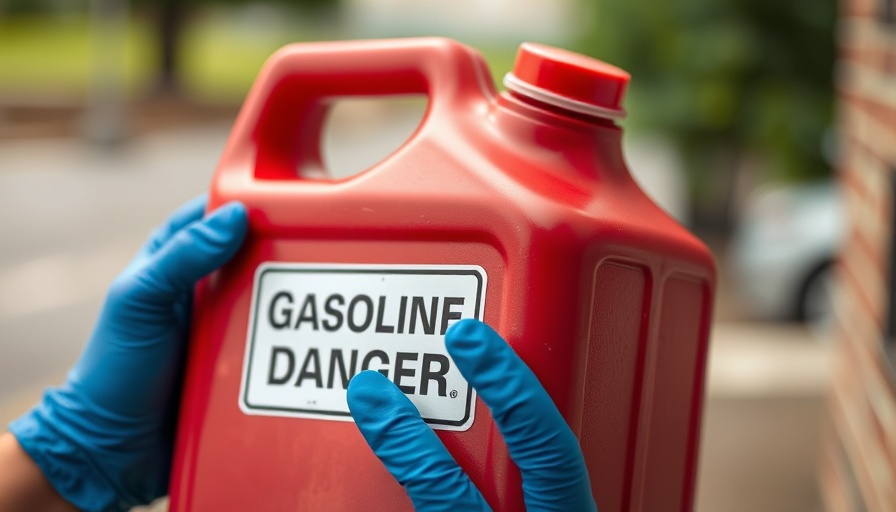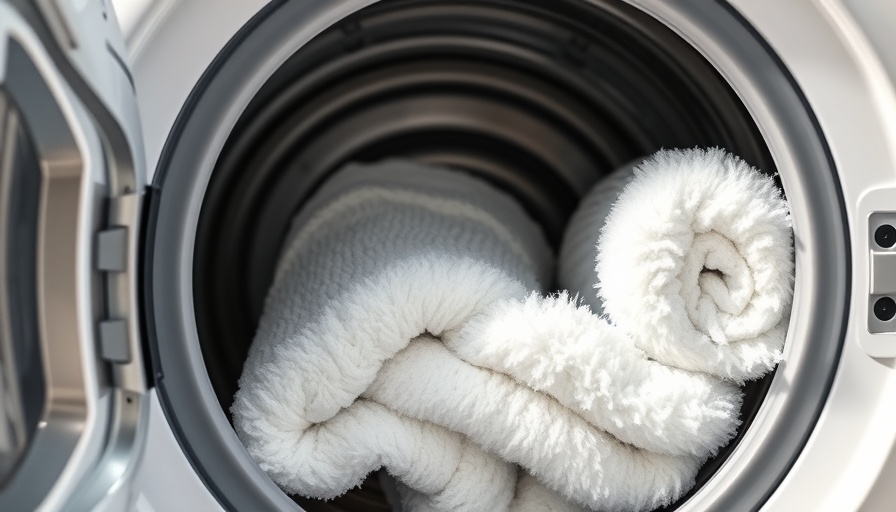
Why Proper Gas Disposal is Crucial for Safety
Disposing of old gasoline the right way is not just a matter of convenience; it's a critical issue of public safety and environmental protection. Gasoline is highly toxic and flammable, making it essential to prevent any leaks or improper handling that could lead to contamination of soil and water sources. Alex Black, an auto enthusiast, compares handling gasoline to dealing with a loaded weapon – it demands respect and caution. A single improper disposal method can lead to myriad problems, including legal fines and serious environmental damage that can persist for years.
Know Your Local Disposal Laws
Gasoline is classified as hazardous waste in all U.S. states, and local regulations can vary significantly. It is vital to familiarize yourself with your specific area's laws regarding hazardous waste disposal. According to Black, while each county has its own rules, they universally advise against disposing gasoline down drains, in trash, or in backyards. Penalties can be severe, with fines reaching hundreds of dollars for unlawful dumping. Accessing your municipality’s waste management authority website is a smart step toward understanding local protocols.
Steps for Safe Gasoline Disposal
If you find yourself with old gasoline, follow a methodical approach to dispose of it safely:
- Use a proper gasoline container: Only use red gas cans designed explicitly for fuel storage. Avoid using improper containers such as milk jugs.
- Label clearly: Mark the container with "USED GASOLINE – DO NOT USE" to avoid any mix-ups.
- Do not mix substances: Never dilute gasoline with other fluids, as this can complicate the disposal process. Keep it in its original form for safe handling.
- Contact disposal sites ahead of time: Before heading out, call your local hazardous waste drop-off location to ensure they accept old gasoline.
- Transport it safely: Store the container in a cool, well-ventilated space during transport and never in an area with no ventilation, like a car with closed windows. Ensure it is secured to prevent leaks.
Finding Disposal Methods Near You
The search for nearby hazardous waste disposal sites starts online. Simple Google searches like "hazardous waste disposal near me" can yield helpful results. Consider reaching out to local mechanics for advice or checking with recycling centers in your area for more information.
Risks of Improper Disposal
Many homeowners underestimate the serious risks associated with improper gasoline disposal. Regular household waste disposal methods are not suitable for gasoline. As Black points out, gas can not only explode but also contaminate groundwater if it seeps into the soil. This contamination has lasting repercussions on health and ecosystems, emphasizing the importance of following local regulations for safe gasoline disposal.
Additional Tips for DIY Enthusiasts
For those embarking on DIY projects requiring gasoline, here are valuable tips:
- Purchase only the amount you need – this minimizes disposal issues.
- Store gasoline in a secure, designated area away from children and pets.
- Use gasoline as needed and check expiry dates, which are typically around 3-6 months for most blends.
Conclusion: Environmental Responsibility
As we engage in home maintenance and DIY tasks, it’s critical to remain aware of our responsibilities regarding hazardous materials like gasoline. Understanding how to dispose of old gasoline correctly can prevent environmental damage and enhance overall safety. Always prioritize safety, legality, and convenience for the well-being of your community and the environment.
 Add Row
Add Row  Add
Add 



 Add Row
Add Row  Add
Add 


Write A Comment